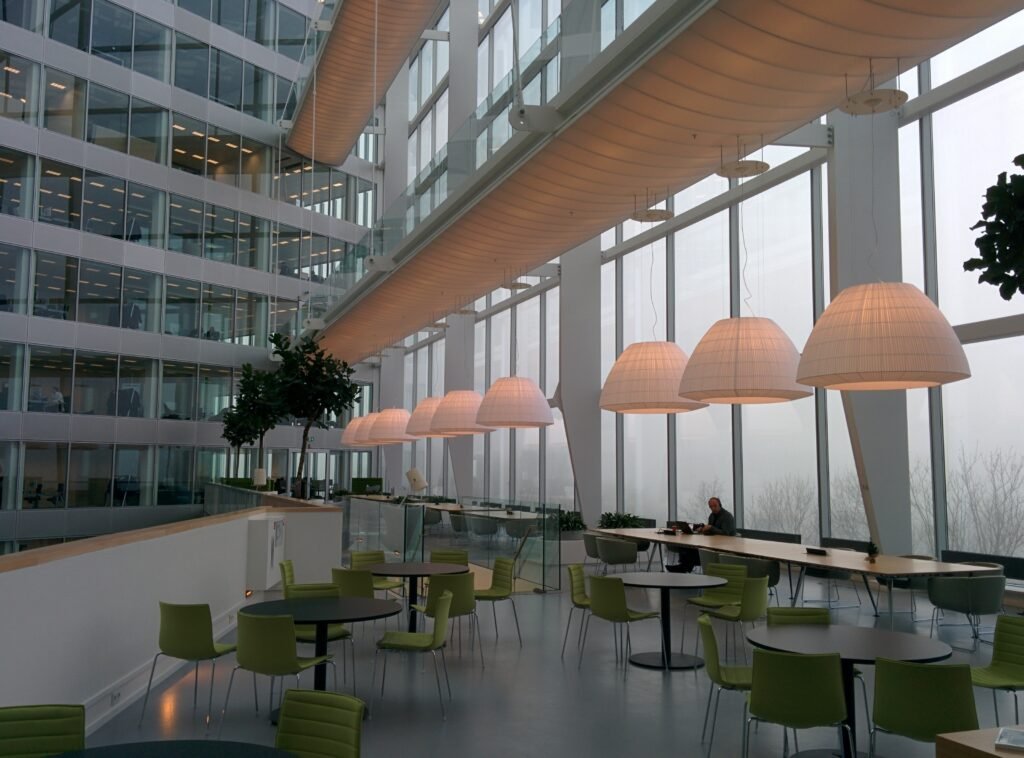New Delhi: Bengaluru has topped the Grade-A flexible stock list of 12 Asia-Pacific region (APAC) cities, according to a study by international property consultant CBRE. As of September, Bengaluru recorded 10.6 million square feet of grade-A assets of flexible stock, the highest among all major APAC cities, including Shanghai, Beijing, Seoul, Tokyo, and Singapore.
National Capital Region (NCR) including Delhi ranked fifth in the list of the highest supply of premium flexible office space in the Asia Pacific region. In the list, there are 12 cities with 6.6 million square feet of flexible stock in Grade-A assets, while Hyderabad secured the seventh position with a stock of 5.7 million square feet.
Bengaluru has the highest supply of premium flexible office space in the Asia Pacific region at 10.6 million square feet, according to CBRE.
In its latest report, real estate consultant CBRE said that Bengaluru topped the list of Asia-Pacific region (APAC) cities having the highest flexible stock ahead of 11 major cities.

As of September 2022, Bengaluru recorded 10.6 million square feet (Grade-A assets) of flexible stock, the highest among all major APAC cities, including Shanghai, Beijing, Seoul, Tokyo, and Singapore.
Anshuman Magazine, Chairman & CEO – India, South-East Asia, Middle East & Africa – CBRE said, ‘India is leading the flexible A-grade office stock in the APAC region. Occupiers are largely re-engineering their portfolio and workplace strategies to accommodate hybrid working arrangements.’ This signals a healthy office sector growth amid an accelerated return to office phenomena in India, led by flexible space operators, he added.
‘It is also noteworthy that Bengaluru, Delhi-NCR, and Hyderabad account for nearly 35 percent of the total flex stock (A Grade) in the APAC region, with Bengaluru recording the highest flexible stock ahead of Asian cities,’ Magazine said.

Shanghai and Beijing are in second and third positions with 10 million square feet and 7.6 million square feet area under the flexible office space category.
In the Grade-A office buildings, the CBRE report mentioned that India and Singapore reported the highest share of flexible office space in the total office space, compared to other Asian nations. Out of the total premium flexible office space in Hyderabad, the share of flexible office space was 5.5 percent — the highest in the APAC region.
The share of flexible office space in Bengaluru out of the total premium office space was at 5.4 percent, followed by Singapore at 4.6 percent and Delhi-NCR at 4.4 percent. Post-pandemic, India continues to witness the highest growth in Flexi-office market in the APAC region, the report said.

Total flexible stock volume in the APAC region stood at 76 million square feet, recording a 6 percent year-on-year growth and was 15 percent above the pre-pandemic growth level during the January-September 2022 period. The total number of flexible space centres in APAC stood at around 3,000.
Tech firms (36 percent) and business services (28 percent) companies remain the top users of flexible office space, followed by finance, life sciences firms, and retail firms in the overall APAC flex market. The flex industry matured over the past two years, said Henry Chin, Global Head of Investor Thought Leadership and Head of Research, CBRE APAC.
‘As we approach the new year, companies that continue to adopt flex spaces would be better positioned to embrace hybrid working arrangements, support their employees, and remain agile in their real estate strategies. Additionally, with companies being able to compare and opt for a variety of flex options, operators have identified and are expanding into secondary markets,’ Chin said.
CBRE APAC study covered 19 major Asia-Pacific markets, including Japan, China, South Korea, Philippines, Hong Kong, Australia, Singapore, and India.

Listing the three major trends shaping the flexible office landscape in 2023, CBRE said flexible space operators would offer on-demand memberships to cater to more dispersed workforces resulting from the widespread adoption of hybrid work.
Occupier demand for customized enterprise and turnkey solutions would grow to mitigate rising fit-out costs and capex constraints. Flexible office space operators would use asset-light strategies by forming partnerships with landlords, it said.
